Actions
Equity by Design: Actions by the Equity 2030 Alliance’s members and experts
Actions by the Alliance’s members and experts (80)
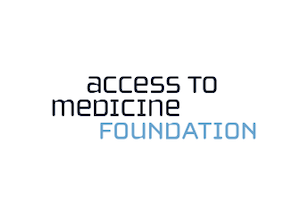
Access to Medicine Foundation
The Access to Medicine Foundation seeks to transform the healthcare ecosystem by motivating and mobilising companies to expand access to their essential healthcare products to all in low- and middle-income countries (LMICs). To achieve this, the Foundation uses a combination of data, research insights and report cards including the Access to Medicine Index. The Index is driven by its mission to ensure that essential health products are available, affordable and accessible to all, including women and young girls in low- and middle-income countries (LMICs). For example, the 2022 Index's Special Report on the topic of sexual and reproductive health and rights (SRHR) identified and assessed companies' actions to ensure women and girls living in LMICs have access to the SRHR-related products in their portfolios, such as contraceptives and HPV vaccines. The Index analysed over 190 health products, of which 39 are indicated for SRHR-related diseases and health needs. The Special Report also identified inclusive business models reaching low-income women and girls, aiming to encourage companies to do more for equitable healthcare.
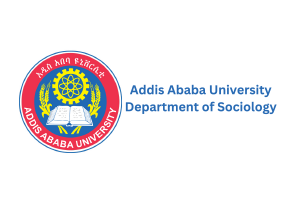
Addis Ababa University, Department of Sociology
The Department of Sociology at Addis Ababa University is committed to examining gender equity in entrepreneurship and the impact of investment in women-centric solutions in Ethiopia. As such, the Department will develop a research proposal to conduct longitudinal research on this topic. The objective of this study is to provide insight on the experiences and needs of women entrepreneurs and to develop actionable policy recommendations and investment strategies that support women-centric businesses.

Adobe
1. Adobe is committed to equitable representation of women globally, especially in its AI products. Adobe has initiatives in place to increase the diversity of outputs in its Generative AI products, to accurately represent people and their cultures with respect and dignity, in addition to a commitment to reduce and remove harmful, biased and stereotypical representations of people on the bases of gender, race and ethnicity, geography, socioeconomic status, immigration status, etc. and every intersection of these social identities.
2. In 2022, Adobe formed the Product Equity team with the mission of driving equitable outcomes across all Adobe products, services and communities. Their work moves Adobe closer to a future in which every person, regardless of human difference, can access and harness the full power of digital products, without bias, harm or limitation. In doing so, Adobe also meets the promises of Adobe for All, Creativity for all and Technology that Transforms. Over the past year since its inception, Product Equity has worked across products like Firefly, Express, Photoshop, Lightroom, Illustrator, 3D&I, Accessibility and more. Product Equity’s impact includes: 1) developing and codifying harm and bias evaluations, risk measurements, racial and ethnic distributions, policy, diverse dataset development and internationalization strategy for Generative AI efforts; 2) growing internal education programs related to equity and inclusive across product development; 3) building strong partnerships with institutions like the University of Kansas on their Project of National Significance, Aspen Institutes’ Tech Accountability Coalition, and the Equity 2030 Alliance.
3. As a part of the Product Equity team's remint, Adobe is currently making deeper investments into products and data, driving to develop stronger datasets specifically for women and gender minorities, ensuring accurate, respectful and diverse representation of people and cultures. In addition to social-identity specific research, Adobe is driving to understand the unique needs and experiences of historically underinvested and marginalized communities (inclusive of women's intersectional identities of race, ability/disability, socioeconomic status, etc.).
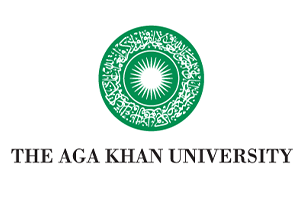
Aga Khan University - Center of Excellence in Women and Child Health East Africa
The Center for Excellence in Women and Child Health, in collaboration with the University of Manitoba and the county governments of Mombasa and Kilifi, is actively conducting research on gender disparities among public sector - health care workers during periods of crisis. The research is focusing on such aspects as to what extent women’s needs are acknowledged during the health crisis preparedness and response; representation of paid/unpaid female health care providers; representation of women in policy development process. Based on the findings, gender transformative policy recommendations will be developed to safeguard the healthcare workforce during periods of crisis. The Center is applying a human centered design and gender based analysis framework to guide its approach. The Center is also working towards confronting gender-blind health workforce policies by proposing and advocating for the application of a feminist approach to policy design (FAPD)

Algorand Foundation
Algorand Foundation is committed to fostering diversity and inclusion in the Web3 space, with a particular focus on empowering women. The Foundation actively supports initiatives that create pathways for women's participation in blockchain technology, to ensure the Web3 space is designed with and for women to meet their needs. In India, the Foundation partners with SEWA, the Self Employed Women’s Association, through its AlgoBharat initiative. This partnership facilitates women's involvement in carbon credit markets and increased participation in health and social safety net programs in order to strengthen labor force linkages. Additionally, a partnership with the Mann Deshi Foundation is focused on improving access to capital for women entrepreneurs through a credit scorecard solution. Besides, the Foundation sponsors women-focused developer workshops at events like BUILDH3R. The goal of these efforts is to support women in building careers and businesses within the emerging blockchain sector.

Alice Innovations Private Limited
Alice Innovations Private Limited has put women at the center of the design and development of their financial service products. The mission of Alice Innovations is to change the investing industry and make investing accessible to all women, challenging the male-dominated norm with a service that is centered around the needs and preferences of women. For example, the platform “Alice Club” has been developed based on extensive consultations with women about their needs, wants, likes and desires for an investment platform.

Annie Jean-Baptiste, Founder and Director of Product Inclusion & Equity, Google
The Product Inclusion & Equity team at Google ensures diversity and inclusion in the front lines of their product design, as championed by its lead, Annie Jean-Baptiste. Annie’s book "Building for Everyone” provides concrete design practices from Google’s Product Inclusion Team to ensure the products are intentionally designed with everyone in mind. The approach emphasizes how the first step in designing products is to develop an understanding of users, acknowledging the diverse needs, preferences, and experiences of people across genders, abilities, ethnicities, and backgrounds.

Anusha Dandapani, Chief Data & Analytics Officer, United Nations International Computing Centre (UNICC)
The United Nations International Computing Centre (UNICC) has made gender equity and equality central to its mission of providing digital and cybersecurity solutions within the United Nations system. Currently, UNICC is leading the development of a customizable data audit solution to help stakeholders identify and mitigate gender equity issues across various contexts in solution development. UNICC has also partnered with academic institutions and has led capstone projects, providing expert support and guidance to students in creating innovative platforms for detecting gender biases in data.
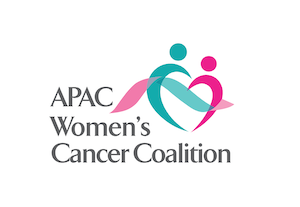
APAC Women’s Cancer Coalition
APAC Women’s Cancer Coalition has developed a white paper on the gaps and opportunities of investing in women's cancers across six countries in the Asia-Pacific region: India, Indonesia, Malaysia, the Philippines, Thailand and Vietnam. The key goal of the white paper “Impact and opportunity: the case for investing in women’s cancers in Asia Pacific" is to support policy shifts to help countries reverse the trend of increasing disease burden and achieve the WHO breast cancer and cervical cancer targets. The paper presents compelling evidence to increase investment in women's cancer care that will enable better prevention, faster diagnosis and earlier treatment for women with cervical and breast cancer, and thus help improving patient outcomes, and closing the gender equity health gaps. Using a benchmarking scorecard, the paper identifies regional opportunities for improvement as well as country-specific calls to action.
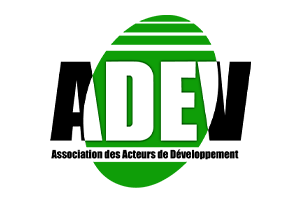
Association des Acteurs de Développement (ADEV)
The Malala Entrepreneurship and Leadership Program (MELP), initiated by ADEV since 2015, is a program that aims to develop a spirit of leadership, entrepreneurship, innovation and volunteerism among adolescents in high school for a gender transformative education with a focus on adolescent girls in Cameroon. The programme, among other goals, addresses inclusion of the girls' needs and concerns during the STEM product development as well as incorporation of the gender inclusive approach in the curricula. The programme also empowers girls by building their capacity in leadership, sharing knowledge on gender and adolescent Sexual and Reproductive Health and Rights, thus investing in girls-centric solutions.
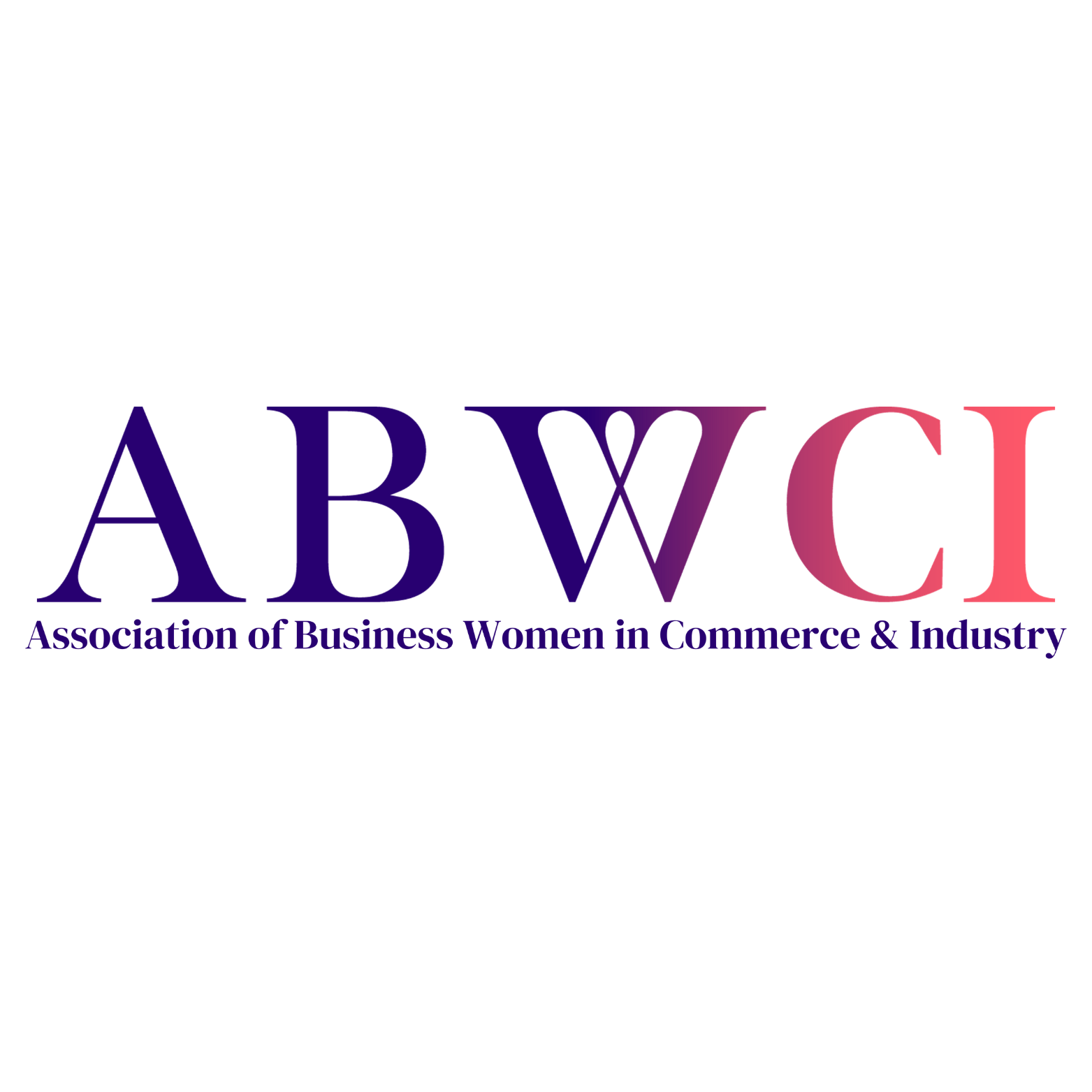
Association of Business Women in Commerce & Industry (ABWCI)
The Association of Business Women in Commerce & Industry (ABWCI) is a global chamber supporting women in business. ABWCI champions women-centric solutions by actively advocating for and investing in women entrepreneurs in over 30 countries. Along with providing access to business capital, ABWCI also provides knowledge on financial literacy through events, newsletters, and social media campaigns. ABWCI’s flagship initiative #WomenInVyapaar aims to facilitate access to markets for women entrepreneurs worldwide. With over 150,000 members and 40+ strategic partnerships, the chamber is fostering a robust community of women entrepreneurs; providing them with opportunities to access investment capital, trade networks & entrepreneurial education; and advocating for policies resulting in women - centric entrepreneurial ecosystems worldwide.
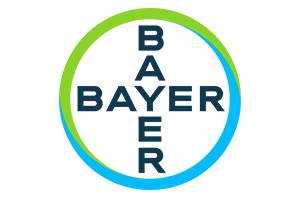
Bayer
1. Bayer is committed to invest and support women's health solutions, in particular related to family planning, using also digital/AI innovations based on the needs of women and girls in low- and middle-income countries. Bayer is dedicated to help provide 100 million women in low- and middle-income countries with modern contraception yearly by 2030. Read full commitment at Bayer.com.
2. Bayer already invests in online platforms designed and tailored to the contextual needs of women and girls, to help them make informed decisions when it comes to their sexual and reproductive health by giving them the tools, information, and the confidence they need. In India, the solution includes an artificial intelligence (AI) based Chabot to educate and inspire adolescent and young adults to live healthy lives, promote sexual and reproductive health and advocate for the health and well-being of girls and women. The AI is trained applying a gender inclusive and unbiased approach. Various activities are also underway in Sub-Saharan Africa, including platforms to inform and guide girls and women to obtain appropriate family planning options.
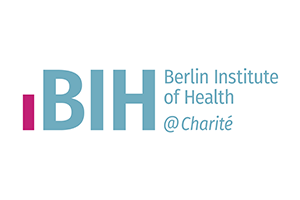
Berlin Institute of Health at Charité
1. The Berlin Institute of Health (BIH) is committed to promoting and increasing visibility of sex and gender issues in translational research. Berlin Institute of Health has awarded the BIH Excellence Award for Sex and Gender Aspects Health Research biennially for for a research project since 2017.The award recognizes research excellence among scientists working in the field of biomedicine, who can show how accounting for sex and gender in translational research improves their research project and make the outcomes and results more useful. The awarded projects are expected to be within the field of translational medicine, in which sex and gender aspects are considered carefully throughout the research project, e.g. derivation of the research question, choice of study design and setting as well as the analysis and for the interpretation of the results.
2. The BIH Digital Health Accelerator (BIH DHA) program supports clinical innovation projects in all clinical disciplines in developing digital health solutions from their innovative approaches and transferring them to patients in medical applications or the market.
An example solution supported by the BIH DHA Program is Gyde, a digital health solution providing support and clinically evident solutions for women suffering from sexual distress caused mostly by underlying conditions such as endometriosis, traumatic birth, after chemotherapy, and many more. Gyde has been developed according to the equity by design principle, to address a topic of women’s health that has been neglected for too long, and thus to bring more equity for an imbalance in care between men and women. The project is currently testing the solution in a bigger feasibility study and is planning to make the solution accessible to all women in the first half of 2024.

Bianca Rech, Head of Women's Football, FC Bayern München
FC Bayern Munich is committed in closing the gender equity gaps in sports, on and off the pitch. For example, The EmpowerHER Program aims to promote the personal and professional development of the FC Bayern Munich's female players for their post-active career paths. Through targeted training, mentoring, and networking activities tailored to the unique desires and needs of female athletes, the program supports the players in maximizing their potential and interests, focusing on the future beyond the pitch. FC Bayern has taken up the cause to support their players comprehensively, and giving the female players the opportunity to look beyond the pitch now, during their soccer career.

Billion Strong
Billion Strong is committed to integrating gender equity in all stages of our product and service design, particularly focusing on solutions that empower women with disabilities. Their three key actions are:
- Data and Research: Billion Strong is committed to understanding the unique challenges faced by women with disabilities. Through rigorous research and data collection, the entity is building a comprehensive knowledge base to inform its initiatives in order to uncover actionable insights that will drive the development of effective solutions.
- Investment in Women-Centric Solutions: Billion Strong is investing in the growth and development of women with disabilities. By providing professional development, mentorship, and training opportunities, the organization helps equip women with the skills and knowledge they need to succeed.
- Global Community Building: Billion Strong is committed to fostering a supportive environment for women with disabilities. By building a global community, collaborating with industry leaders, and advocating for inclusive policies, the organization is creating an ecosystem where women with disabilities can thrive - break down barriers, challenge stereotypes, and create opportunities for these women to contribute to society.
Over the next three years, Billion Strong will launch a global community platform, conduct research, build partnerships (Year 1), roll out professional development programs and initial solutions (Year 2), and expand initiatives, advocate, and evaluate impact (Year 3).
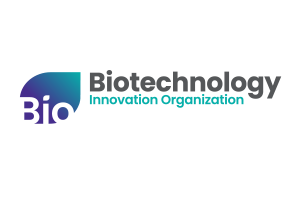
Biotechnology Innovation Organization (BIO)
BIO is committed to raising awareness and advocating for increased basic research funding to improve our understanding of the underlying causes of diseases impacting women's health so we are better positioned to incentivize investment in improved interventions for women. BIO is also committed to working with allies and policy leaders to remove barriers and incentivize the development of medicines that can deliver improved interventions for women.
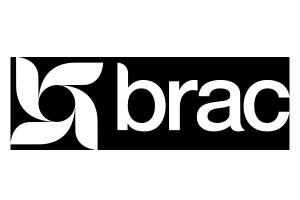
BRAC
BRAC invests in holistic, women-centric solutions that drive social and economic empowerment of adolescent girls and women in low and middle-income countries. BRAC International, BRAC’s international arm which supports programming outside of Bangladesh across Africa and Asia, aims to reach seven million women and their families over the next three years with inclusive financial solutions, sustainable livelihood options and integrated empowerment interventions. The programmes center women as clients, teachers, health workers, development professionals, artisans and entrepreneurs who drive intergenerational change and build stronger communities and economies.
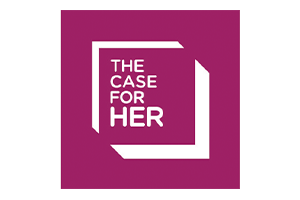
Case for Her
The Case for Her is moving the needle on SDG 5 of gender equality by investing in stigmatized key women's health issues of menstrual health, sexual pleasure & abortion access. The investment strategy includes offering convertible debts, grants and equity investments for opportunities that have significant potential to grow.
The Case for Her also invests in first-time and emerging female fund managers that invest in female founders starting femtech companies. As of 2023, these investments have helped fund 34 other women's health companies.
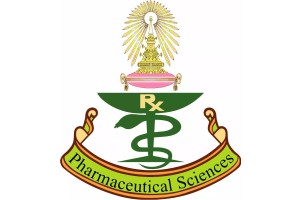
Chulalongkorn University (Faculty of Pharmaceutical Sciences)
The Chulalongkorn University (Faculty of Pharmaceutical Sciences) is committed to ensuring that progress in research and development produces solutions that specifically address the needs of women and thus will prioritize:
- Gender equity in research and work-integrated learning opportunities. This ensures women have equal access to participate in research projects and gain valuable workplace experience.
- Gender equity in accessibility to basic infrastructure in the institute. This will encompass things like ensuring safe and accessible restrooms, lactation facilities, and flexible work arrangements.
These aforementioned actions are expected to expand to cover all nationalities from ASEAN +5 within the next two years.
Civic Federation For Human Rights Peace and Development Nepal
Civic Federation Nepal is committed to advancing gender equity in Nepal through a three-year initiative focused on gender-responsive design, data-driven decision-making, and strategic investments. By incorporating women's perspectives into the design of its programs and services, Civic Federation Nepal aims to create solutions that meet the unique needs of women and marginalized groups. A comprehensive data framework will be established to track progress, inform decision-making, and ensure accountability. Civic Federation Nepal will invest in vocational training, entrepreneurial support, and leadership development programs to empower women economically and socially. While specifically targeting the Madhesh Province, the initiative will prioritize scalable and replicable models, contributing to broader gender equality in Nepal and aligning with the goals of the Equity 2030 Alliance.
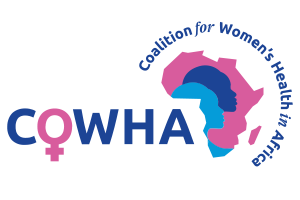
Coalition for Women's Health Africa (COWHA)
Through multi sectoral partnerships, resource sharing, and collective problem-solving and action, the Coalition for Women’s Health Africa (COWHA) is committed to making measurable strides in improving women's health outcomes in Africa. COWHA’s mandate is to foster partnerships and advocate for an enabling environment to advance women's health through three fundamental pillars: Knowledge and Research, Awareness Creation, and Action. COWHA is a membership-based organization consisting of non-state actors keen to support and collaborate with the public sector to promote, drive, and leapfrog the right policies, guidelines, and strategies that will foster tangible actions and initiatives for positive change for women and girls in Africa.
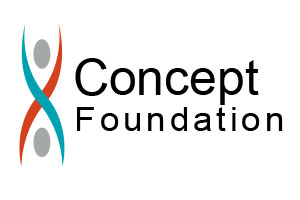
Concept Foundation
Concept Foundation is committed to promoting health equity, by improving equitable access to quality-assured sexual and reproductive health medicines and technologies, with a particular focus on women and girls in low- and middle- income countries:
1. Through the global Accelerating Innovation for Mothers (AIM) initiative, Concept Foundation defines and implements pathways for advancing development and introduction of innovative products for pregnancy-specific conditions through global partnerships. Together with partners, Concept Foundation is creating a movement, operationalizing key research to accelerate innovations for pregnant women, especially for those who have the greatest need.
2. Through the AIM Initiative, Concept Foundation has developed the first ever target product profiles (TPPs) for medicines preventing and treating several maternal health conditions, describing the optimal characteristics that these medicines should have. Concept Foundation has also established a novel approach to analysing the pipeline of maternal health medicines and diagnostics and to identifying the most promising candidate medicines that donors, researchers and manufacturers should ideally invest in.
3. AIM-GENDER is Concept Foundation’s project to address the importance of including women in clinical trials. Through research, Concept Foundation explores the attitudes and behaviours among care providers as well as pregnant women and their families, towards participation in clinical trials during pregnancy. The primary research will take place in three countries, the first being India.
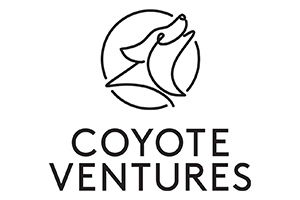
Coyote Ventures
Coyote Ventures is committed to investing in US-based startups in women's health and wellness, with a focus on digital health and consumer products. In addition, Coyote Ventures ensures that the founders of the companies invested have lived experiences with the populations they are designing their products and services for.
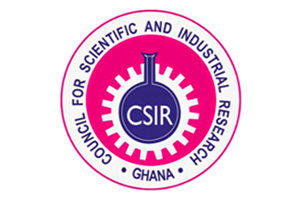
CSIR-Science and Technology Policy Research Institute
The CSIR - Science and Technology Policy Research Institute is committed to strengthening African researcher’s capacity in gender equality, diversity and inclusivity in research design, implementation, and dissemination through related capacity building, collaborative networks, research funding and grants and policy advocacy actions.

Daren Tang, Director General of the World Intellectual Property Organization (WIPO)
The World Intellectual Property Organization (WIPO), is progressively working to improve diversity in the use of IP for the good of everyone, everywhere. WIPO has developed projects that promote and advance women’s engagement in all aspects of IP and innovation including though focused capacity building initiatives and delivery of concrete impact-driven activities that encourage women’s use of IP in their entrepreneurial activities.
Understanding how women and men can access and use the intellectual property (IP) system equally is key to ensuring that their ingenuity and creativity translates into economic, social and cultural development. WIPO is leading the efforts in closing the Innovation Gender Gap and has, inter alia, published a short guide that summarizes best practice for producing innovation and IP gender indicators. Find the Guidelines for producing gender analysis from innovation and IP data here.

DASEIN
DASEIN Magazine is committed to amplifying the voices of women and minority groups in the creative industry by featuring women-centric stories and solutions in their issues. By showcasing emerging artists and fostering diverse representation, DASEIN represents a platform that contributes to gender equity and creative economy growth with specific attention given to women - allowing them to tell their story in their own voices. With a focus on design and data-driven storytelling, DASEIN aims to empower women and minority groups through visibility and platform building that enables sharing of stories of everyday gender inequities women face, but also about the actions that are breaking the barriers. Dasein features unknown and emerging artists and creative personas, focusing on their journeys, challenges, and successes, giving them an opportunity to express themselves and share their narratives directly with the audience. Over the next five years, DASEIN strives to achieve a global footprint as a platform for emerging artists worldwide and as an amplifier for sharing the stories of gender equity across creative industries.

Deemah AlYahya, Secretary General, Digital Cooperation Organization
Digital Cooperation Organization works collaboratively with governments, the private sector, international organizations, NGOs and civil society to enable more inclusive digital transformation and the growth of digital industries. By bringing together nations and exchanging expertise between member states, DCO is accelerating coordination and cooperation in the digital economy, ensuring and advocating for standards, policies and regulations that promote an equitable future and create more gender-inclusive solutions in the digital economy.
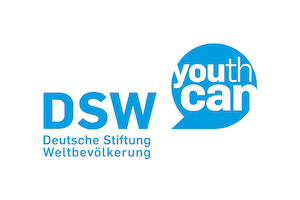
Deutsche Stiftuang Weltbevölkerung (DSW)
Deutsche Stiftuang Weltbevölkerung (DSW) is committed to creating greater awareness of and driving investment in women’s health research and innovation needs. DSW does this by advocating for greater support and investment especially from the European Union and Germany for the research and development of new health tools for sexual and reproductive global health issues, as well as supporting young people in East Africa, especially girls, and young women, to have access to high-quality health services and to make self-determined decisions.

Doreen Bogdan-Martin, ITU Secretary-General
The International Telecommunication Union is fully committed to advancing gender equity in technology and closing the gender digital divide. Through transformative initiatives such as the EQUALS global partnership, ITU is working to ensure women and girls everywhere have the opportunities, skills, and confidence to shape and lead our shared digital future.
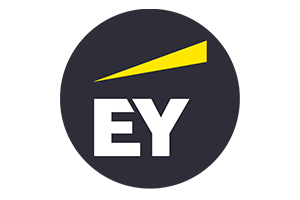
EY
In alignment with EY’s purpose towards Building a Better Working World, and through its Centers for Health Equity, EY aims to;
1. Build a multi-year partnership by supporting the Equity 2030 Alliance advocacy, including through investments and expertise, to promote awareness about gender health equity gaps, including in science, tech, and financing solutions.
2. Facilitate the development of metric portfolios relevant to the health needs and concerns of females.
3. Support solution design for relevant stakeholders seeking to accelerate their health - gender equity efforts, inclusive but not restricted to strategy planning and execution, infrastructure development, and utilization of health-gendered equity data sets and benchmarks, as well as collecting existing good practices to enable impact towards gender equity gap closure.
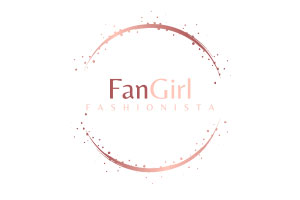
FanGirl Fashionista
FanGirl Fashionista is committed to disrupting the “Shrink It and Pink It” approach currently used in sport and entertainment brand merchandise and other industries made and sold to women. Across industries, merchandise and several products are currently made with mass manufacturing using male silhouettes for the lowest costs, which when bought and used, range from insulting to dangerous for women. Starting with sports and entertainment merchandise, with plans to disrupt manufacturing in other industries such as: Medical, Automotive, Civil Service, Military and Consumer Products, FanGirl Fashionista’s approach is to disrupt the “Shrink It and Pink It” manufacturing and product development process to create gender equity with designs created and tested by women, specifically for women.

Femtech Association Asia
FemTech Association Asia is committed to advancing gender equity in healthcare through entrepreneurship and technology solutions. As the region's first and largest specialist advisory and femtech industry network, FemTech Association Asia is building the women's health and femtech ecosystem in Asia through SME advisory, thought leadership, programming, amplification and partnerships. Representing over 75 companies across nine Asian countries with global connectivity, FemTech Association Asia aims to attract resources and investment to fuel the creation of healthcare solutions designed specifically for women's needs with a vision of accessible, affordable, and equitable healthcare for every woman at every stage of life.

FemTech India
FemTech India is committed to advancing gender equality by leveraging FemTech and women's health technology solutions by providing research, funding, mentorship, and resources to companies in the technology sector focusing on this space. The entity has taken action by publishing a collection named "Women’s Health Innovation" which highlights the FemTech & women's health sector in India and shares compelling stories of leaders across healthcare, policy, technology and investment domains. Besides, FemTech India has recently launched a comprehensive research report to identify unmet needs and opportunities for FemTech advancements in India and in other countries in South Asia such as Sri Lanka, Nepal, Bhutan. The company will allocate significant funding to support the development and deployment of impactful FemTech solutions for these regions.
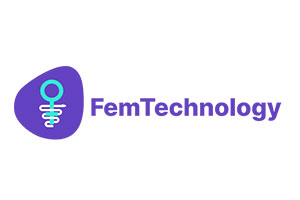
FemTechnology
FemTechnology is developing The FemTechGuide platform, designed to focus on women's perspectives and priorities in their healthcare. The FemTechGuide emphasizes the collection of nuanced data, including not only clinical endpoints but also self-reported outcomes and quality of life metrics. FemTech Guide strives to move away from the fragmented approach of catering to specific conditions in isolation, instead offering a unified platform that understands and addresses the overlapping and evolving nature of women's health needs throughout their lives.
FemTechGuide aims to bridge the gaps from both the patient and clinical perspectives, aligning them with researchers and innovators capable of creating targeted solutions in the area of women’s health. The aim is to act as a catalyst in the market: allowing innovation to connect more systematically with those who need it most and to stimulate more research to be conducted and applied effectively.
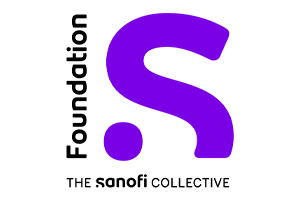
Foundation S - The Sanofi Collective
Foundation S, the philanthropic organization of Sanofi, aims to create healthier futures for generations to come by supporting the most vulnerable in low and middle countries, including women and children. It does this through programs that align with its commitment areas which include, childhood cancer, climate change and its impact on health, and neglected tropical diseases. Focusing on these areas, and in partnership with local partners, including local community-based organizations, governments, and healthcare practitioners, Foundation S works with mothers to support children with cancer in low income settings, women and families in climate impacted countries, and marginalized communities in remote parts of Africa that continue to be threatened by neglected tropical diseases, such as sleeping sickness.
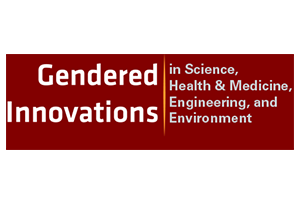
Gendered Innovations Lab, Stanford University
1. The Gendered Innovations Lab harnesses the creative power of sex, gender, and intersectional analysis for innovation and discovery. Gendered Innovations 1) develops practical methods of sex, gender, and intersectional analysis for scientists and engineers; and 2) provides case studies as concrete illustrations of how sex, gender and intersectional analysis leads to innovation. Gendered Innovations is a global project with over 2 million users across 185 countries. Find the checklist for sex & gender analysis, case studies, and more resources at Gendered Innovations Labs website.
2. The Gendered Innovations Lab has developed Intersectional Design Cards for the design of products, services, and infrastructures. Intersectional Design drives innovation while supporting social justice and environmental sustainability. It's about getting the design right for people across all of society—from the very beginning.

Global Blockchain Business Council (GBBC)
Global Blockchain Business Council is committed to fostering gender equity within the blockchain and digital asset industry. This commitment extends to ensuring that women's voices are equitably represented in industry discussions, events, and public-facing initiatives at all levels.
Key Actions:
1. Inclusive and gender-equitable advocacy: GBBC is s dedicated to ensuring gender-equitable design of the advocacy efforts, ensuring women's voices and expertise is represented and reflected.
2. Building inclusive communities: GBBC is advancing inclusive and gendered investments, dedicated to galvanizing support amongst the blockchain and digital asset community to empower underserved communities globally to mitigate the widening digital divide and democratize access to opportunity, regardless of gender, age, geography, disability, or socioeconomic status. Under this context, the GBBC has created GBBC Giving, an organization that will devote philanthropic resources to educational efforts focused on inclusion and solving real-world problems to ensure that the benefits and opportunities created by the growth of the blockchain and digital assets industry, as well as technology in general, are enjoyed by many, not just a select group of individuals.
3. Global Outreach: GBBC leverages its global membership base to actively seek to include women from diverse regions in its advocacy and expert efforts and initiatives to ensure that the commitment to gender equity is reflected on the global scale.

Global Gender-Smart Fund
The Global Gender-Smart Fund (GGSF), the world’s largest gender-lens investment fund, has implemented a strategy focused on gender-smart financing. By providing debt financing to financial institutions in developing markets globally, the Fund focuses on strengthening the provision of gender-smart and responsible financial services concentrating on underserved women as well as women-owned and women-led businesses in developing markets, thereby seeking to improve livelihoods, increase gender balance and outreach, and promote women’s leadership. Additionally, the Fund aims to improve gender equality at the level of the financial institutions themselves: On the one hand, by improving the gender-balance at senior level, on the other hand by improving working conditions for women.
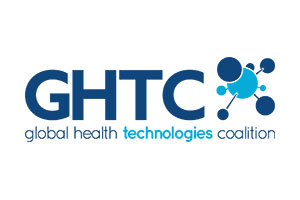
Global Health Technologies Coalition (GHTC)
Global Health Technologies Coalition (GHTC) is committed to advancing gender equity across the entire research and development value chain, by leveraging its expertise to influence and advocate for more inclusive and equitable practices and policies in global health research and development (R&D). For example, GHTC is actively developing a Global Health R&D Equity Compact, a guiding document which centers affected communities’ voices and perspectives to make recommendations to key stakeholder groups, and serves as an accountability mechanism for the global health R&D community. The compact includes a subsection dedicated to gender inclusivity that will ensure the practice of global health R&D includes individuals with diverse gender identities to garner a more comprehensive understanding of health conditions to achieve improved public health impact.
Global Surgery Foundation
The Global Surgery Foundation (GSF) is committed to closing the gender equity gap by improving the health of women, families, and communities in low- and middle-income countries by accelerating access to innovative, evidence-based, integrated and sustainable surgical care systems. Focusing on maternal health and women’s cancers, the GSF Women’s Health Programme is integrating innovative approaches and digital technology to bridge the gender equity gap, and leveraging data for continuous learning, adapting, and generating evidence for better health outcomes for women. The locally led, locally driven, women-centred projects include, for example, the C-Safe Programme on access to appropriate safe caesarean sections in district-level settings as a critical step towards reducing maternal mortality. Other projects focus on improving access to surgical care for breast and cervical cancer, including co-leading with UNITAR a programme on value-based healthcare for breast cancer services in Türkiye and Rwanda.
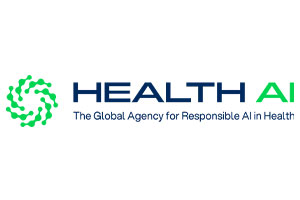
HealthAI
1. HealthAI has positioned Gender Equity and Inclusion (GEI) as a foundational principle of its strategy. This commitment carries weight, particularly in low and middle income countries, ensuring that AI systems comprehensively serve diverse global populations within their unique contexts. By actively addressing and rectifying gender and other bias in AI for health, HealthAI aims to utilize robust regulation to ensure AI solutions are responsible and inclusive, thus contributing to equitable healthcare opportunities worldwide.
2. HealthAI is committed to advancing gender equity in the development and adoption of Responsible AI solutions in health through the collaborative implementation of regulatory mechanisms and global standards. The key features of the action and outputs of HealthAI focus on employing governance and regulation to build trust, advance equity, and deliver on the potential of artificial intelligence in health. The successful prioritization of gender equity will result in regulatory mechanisms that support health equity and ensure AI solutions do not exacerbate the digital divide.

HERhealthEQ
HERhealthEQ deploys medical equipment focused on women's health, in particular non-communicable diseases in low and middle income countries to close the health equity gaps. The non-profit has deployed projects in 11 countries that focus on breast cancer, cervical cancer, maternal health, and heart disease, with a target of reaching at least 1 million women with better health as a result. As of now, the projects have reached 52,000 women directly and 275,000 indirectly.

HeyVenus Integrated Healthscience
HeyVenus Integrated Healthscience (HVIH) is dedicated to revolutionizing perceptions of menopause and menstrual health through personalized, affordable, and scientifically validated solutions that cater to the specific needs of each woman. HVIH fosters a supportive community that promotes understanding, inclusivity, and well-being for women.
HVIH has partnered with the NUS Bia-Echo Asia Centre for Reproductive Longevity and Equality (ACRLE) to conduct a research study on menopause and menstrual health in the workplace. This research aims to delve into the distinctive experiences and requirements of both employees and employers concerning these health issues in the workplace, and to develop a whitepaper that provides practical guidance for workplaces. The initiative intends to enhance women's healthcare practices, while advocating for workplace awareness of menopause and menstrual health issues and establish a global network to support long-term reproductive care in Asia Pacific.
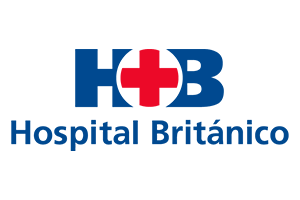
Hospital Britanico
1. Hospital Británico is developing a qualitative study on the barriers and facilitators faced by women leaders involved in health research in low resource settings. The retrospective study will analyze the research data of the Scientific Committee of the British Hospital of Buenos Aires from the past 5 years, to record what proportion of publications discriminated against sex and gender in the analysis of the results. The visualized results will inform on developing more effective strategies to address the low inclusion of women and the low adherence to discriminate variables by gender and sex.
2. Hospital Britanico is aspiring to develop a proforma of a research model for women, with all necessary topics to take into consideration as a checklist for researchers.
3. Hospital Británico will propose incorporating the Health and Medicine checklist on Gendered Innovations, developed in Stanford University to enhance the implementation of educational strategies for the hospital's residency training courses. By adopting this evidence-based approach on considering gender as a potential factor in research, we aim to enhance the quality and outcomes of our residency training programs.
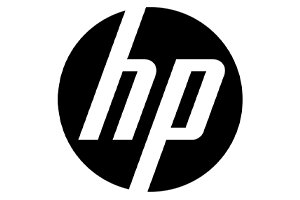
HP
HP invests in solutions that support women's career development through collaboration with women's and girls' organizations to ensure that programs and interventions are designed based on their needs and preferences. Such solutions include capacity-building programs, technological solutions, educational platforms and women-centric financial solutions. For example, HP is committed to continuing to improve representation of women at HP, with a focus on management. This commitment is supported by programs such as HP Catalyst, a 12-month emerging leaders program (68% of program participants were women in 2022), and initiatives such as Disha, a six-month program in India; the Talent Development Program and Women in Leadership Lab in Mexico; the annual women’s leadership conference in the United States; and WOLFpack, an eight-month women’s development program in Costa Rica.
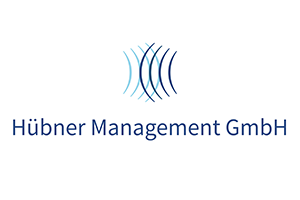
Hübner Management GmbH
Hübner Management GmbH is committed to raise awareness and increase funding to address the root causes of gender inequity in solutions design. Through the commitment, Hübner Management GmbH encourages investment in innovative interventions specifically designed to improve women's health in all its international activities.

iHS Strategies
iHS Strategies is committed to bridging health innovation ecosystem gaps by facilitating effective partnerships to unlock scientific, societal, and economic opportunities for all, particularly focusing on the subject of gender health equity. The company’s mission is to build strategies to advance science and improve health outcomes for stronger and more equitable and inclusive economies and societies around the world.

Impact Global Health
Impact Global Health is set to arm decision makers, advocacy groups and the broader sector with the tools and data needed to accelerate innovation in research and development (R&D) for women’s health, and to stimulate efficient funding for this R&D, thereby improving women’s health outcomes globally – particularly of women living in low and middle income countries.
The portfolio of work related to the women’s health biomedical R&D ecosystem includes collecting and sharing data and insights into global investment in sexual and reproductive health (SRH) R&D, and systematic research into historic and current pipelines of biomedical products for a growing range of maternal health issues.
Impact Global Health is also in the process of expanding its scope within the women’s health space by applying a feminist, women’s health lens to identify sex and gender driven health inequities and market gaps across the global health R&D landscape more broadly. This entails exploring pathways for narrowing the gender-data gap across global health areas, including neglected diseases, emerging infectious diseases and SRH, and data types, such as investment, clinical trial, pipeline and impact data.
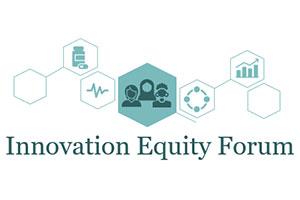
Innovation Equity Forum
The Women’s Health Innovation Opportunity Map 2023 is a new global good that outlines 50 equitable, high-return opportunities to advance global innovation for women’s health. The Opportunity Map was developed by the Innovation Equity Forum, a collaborative partnership with over 250 stakeholders across diverse sectors and geographies. This important new resource for the women’s health community aims to provide a roadmap for new research and funding opportunities, consolidated advocacy efforts, and increased global action and investments in women’s health.
Everyone is encouraged to utilize the resources below to learn more about the Opportunity Map and to help share this global good with your networks. Feel free to circulate this document as well as any of the resources below.
The full report is available here. Translations are under development and will be available upon request.
The Women’s Health Innovation Opportunity Map 2023 is a by the Innovation Equity Forum, sponsored by the Bill & Melinda Gates Foundation and the National Institutes of Health.

Julie Bissinella, Director of Engagement and Impact, Champions of Change Coalition
Champions of Change Coalition has released a resource "7 Switches: A Guide for Inclusive Gender Equality by Design". This pioneering initiative aims to help embed inclusive gender equality at the heart of all decision-making and design processes, across the any decision, project or business management system - by design. Download the 7 Switches Guide here.
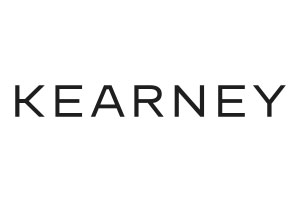
Kearney
Kearney initiated a cross-sector community building and collaboration to build momentum, track impact and improve gender equity in healthcare. To do so, Kearney launched the Open Letter for change and issued a supporting report at the World Economic Forum 2024 Annual Meeting with 50+ founding signatories spanning the entire healthcare value chain from pharma companies, providers, academics, investors, start-ups and non-profits. The initiative is aiming to address the gender biases and gaps in healthcare that result in disadvantaged females and women, ranging from a lack of funding and research into female diseases, to drugs and devices being tested and designed for the male anatomy.
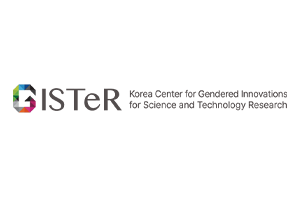
Korea Center for Gendered Innovations for Science and Technology Research
Korea Center for Gendered Innovations for Science and Technology Research (GISTeR) is committed to developing Gendered Innovations research cases in various fields where sex and gender analysis can be applied. The Research Series and all reports and guidelines published by GISTeR can be found on the GISTeR website.

Lalita Taylor, Executive Producer and Hybrid Learning Events Director, Co-Chair of BBC WiStem, BBC
BBC women in STEM (WiSTEM) initiative is addressing gender equity gap in STEM, advocating for gender equality and equity needs to be considered as part of the analysis of the problem, the formulation of research questions, the piloting of solutions and community engagement. The initiative has empowered over a thousand of BBC women to be role models to attract talent to the BBC and create a pipeline of young people keen to start a career in STEM. The advocacy events featuring the initiative have reached over two thousand and delivered a collaboration with Sky and News UK. MediaTechWomen enters its second year with sold out International Women Day events.

Life Matters International
Life Matters International (LMI) is committed to advancing gender equity in health by reducing maternal mortality and preventing cervical and breast cancer in underserved areas of the Philippines. LMI achieves this through knowledge transfer and medical missions focused on women's health. LMI's work directly addresses gender equity in health by providing essential services and education to marginalized populations, empowering women through improved access to healthcare.
Lily of the Valley
Lily of the Valley embodies the Equity by Design approach by creating innovative and adaptive innerwear that caters to the needs of diverse individuals who menstruate, including transgender men, queer individuals, and people with limited mobility. To ensure gender equity, Lily of the Valley actively collaborates with the communities they support during the product design and development process. By identifying gaps together, they create functional garments that prioritize comfort, confidence, and bodily autonomy for everyone. In addition to their design philosophy, Lily of the Valley also demonstrates their commitment to empowering women and under-represented sectors through giving back, donating underwear to women and girls who lack access to these essential items. Lily of the Valley is dedicated to making a positive impact by providing inclusive solutions and supporting those in need.
LinkedIn is actively researching gender disparities in AI skills within the labor market, recognizing that addressing these inequities is crucial for fostering gender-inclusive product design. Leveraging the unique access to labor market data from over 950 million professionals on the platform, LinkedIn is analyzing how AI skills are spreading across industries and geographies, how AI is transforming jobs and careers, and how professionals and businesses are engaging with AI on LinkedIn. LinkedIn is eager to provide valuable data and insights derived from this extensive dataset on gender imbalances in the AI workforce to drive public and private initiatives focused on advancing gender-inclusive design practices.
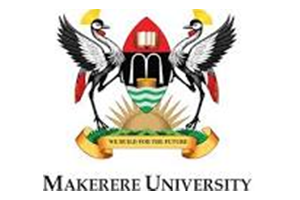
Makere University
Makere University has established The Gender Mainstreaming Directorate (GMD) to serve as the Secretariat for its cross cutting Gender Mainstreaming Program. The GMD is mandated to mainstream gender in all university functions to ensure gender equitable approach at all stages of research and innovations.
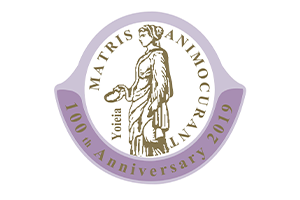
Medical Women’s International Association
1. The Medical Women’s International Association has published a Training Manual on Gender Mainstreaming in Health, in response to the need of physicians to understand how adding a gender perspective to health and health care could favorably influence the health of women and men.
2. The Medical Women’s International Association is pleased to launch a Training Module focused on the prevention and elimination of all forms of violence against women and girls. Development of the module began by conducting a survey with 32 national medical women associations and/or national experts identifying gaps, successes and challenges. One of the questions asked was: “What could MWIA do to support you?” The modules provide a global perspective on the scope of the issue and impact on victims and survivors; they provide knowledge translation identifying what programs have worked, those that have failed and which preventative measures were successful; the modules also provide training and teaching material for medical women. The teaching resource on violence will be a door opener for advocacy for a binding norm in the form of an optional protocol to CEDAW dedicated to ending violence against women and girls. It will also raise awareness among physicians and will provide knowledge transfer. The modules should be used and integrated into national medical curricula and can be used to train physicians at every professional level.
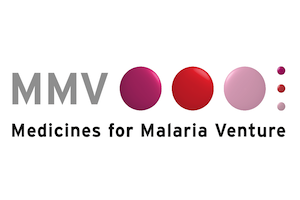
Medicines for Malaria Venture
1. Medicines for Malaria Venture (MMV) is committed to addressing the gender-equity gaps in the fight against malaria and other poverty-related diseases that thus far have been gender-blind. MMV has established a Malaria in Mothers and Babies (MiMBa) strategy to shift malaria clinical research and product development to eliminate gender bias and improve the availability and access to malaria treatment and prevention during pregnancy. In its 2024-2030 strategy, MMV will continue to develop and facilitate access to drugs for pregnant women. The MiMBa strategy focuses on screening compounds for prioritization in early pregnancy, equitably including pregnant and lactating women in clinical studies, adapting current treatment pathways to better address the specific needs of pregnant and lactating women, improving data allowing for better access to medicines adapted for the needs of this population, and carrying out advocacy initiatives in support of these objectives. MiMBa has already been effective in shifting antimalarial R&D practices to promote the inclusion of pregnant and lactating women in clinical trials and product development and improve the quality and availability of data on the safety and efficacy of antimalarials used during pregnancy.
2. Through the Medicines for Malaria Venture 2024-2030 Corporate Strategy, MMV has fully committed to advocacy and convening global health actors to close the gender-equity gaps. MMV has organized several consultations with product developers and major stakeholders, published communications and opinion pieces and organized advocacy events. Advocacy is also a key pillar in the Malaria in Mothers and Babies (MiMBa) strategy.

MommyKidz
MommyKidz is committed to championing gender equity through digital health solutions. They aim to enhance gender equity in product designs, ensuring that digital health solutions are tailored specifically to the needs of women, with particular attention to those in underserved regions. MommyKidz has developed Bangladesh's first-of-its-kind social wellbeing community, specifically designed to support the journey of puberty, pregnancy, and parenting. The platform allows users, regardless of their economic condition or location, to ask questions anonymously, access information, health education, healthcare services, self-care tools and obtain sexual and reproductive health products without hesitation. Currently, it operates solely in Bangla, and Bangla-speaking users from 70 different countries have joined the community. With its expanding reach, MommyKidz aims to ensure that no girl or woman is left alone or left behind in the cycle of growing up to growing together: from puberty, through pregnancy, to parenthood.
Initially focusing on Bangladesh, MommyKidz aims to scale this model across South Asia and sub-Saharan Africa, empowering women through accessible healthcare technology, and envisions a full-scale implementation by 2026
Their Centering Women’s Health Action Plan is dedicated to integrating gender equity in their product in three ways:
- Data for Equity: MommyKidz will collect and use disaggregated data to understand women's specific health issues across different life stages. The algorithms will be refined to ensure fairness and personalized care for female users.
- Building with Women: MommyKidz will actively collaborate with female healthcare providers, patients, and community leaders to ensure their solutions address the specific challenges women face. The design and development processes will prioritize user feedback, particularly from underserved regions.
- Investing in Women's Wellness: A dedicated portion of funding will be allocated to develop features that directly support women's health, such as enhanced reproductive health tracking and maternal health tools.

Ms. Pamela Coke-Hamilton, Executive Director, International Trade Centre
The International Trade Centre is committed to ensuring trade supports the economic empowerment of women and girls by supporting women entrepreneurs, women business associations, and striving to integrate policies that benefit women-led suppliers. Through the SheTrades Initiative, ITC unites a wide range of services to address specific barriers for women to access markets, finance, digital technologies, and business development services:
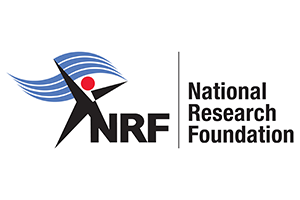
National Research Foundation, South Africa
The National Research Foundation of South Africa has established the South African Research Chairs Initiative (SARChI) to attract and retain research excellence and innovation at South African public universities, research councils and national research facilities. SARChI is also intended to support and advance transformation of the South African research enterprise in terms of demographics and contribution to the knowledge economy. This will ensure that there is equitable and inclusive participation in the generation of knowledge and that it translates into policy and socio-economic benefits. Women make up over 50% of research chairholders at South African universities and researchers. This inclusivity helps to support research design, knowledge production, and sound evidence for policymaking and interventions that is for women, by women and of women.

Neuraura
Neuraura is committed to closing the gender equity help gap by developing a platform for polycystic ovary syndrome (PCOS), one of the most common, most profound and most overlooked hormonal conditions affecting biological women. The development of their innovative solution, designed to meet women’s needs, is informed by integrating diverse end-user perspectives through their end-user advisory board.
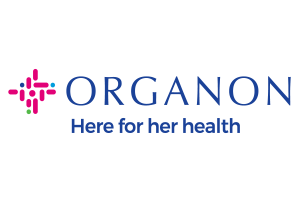
Organon
Organon aims to redefine and harness innovation in women’s health by dedicating a majority of its pre-clinical and clinical development activity toward areas that address the unmet health needs of women and girls.
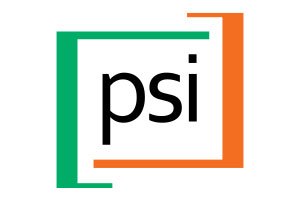
PSI
PSI is investing in holistic girl-centered solutions and pursuing innovative ways of ensuring interconnected, holistic solutions in the PSI focus areas of sexual and reproductive health, maternal and neonatal healthcare, economic empowerment and HIV. The PSI programs are tailored to address the unique needs of women and adolescent girls in specific contexts.
1. PSI is building the evidence base of the impact and return on investment of menstrual health interventions. cost-benefit/ROI analysis. The goal of this evidence creation is to help the international community of practice to make the case to invest in menstrual health, in addition to highlighting the significance to gender equity in health and human rights. Marrying innovative product development, leveraging digital solutions, service delivery, and marketing, this work aims to address persistent health equity challenges. PSI’s work also includes the landscaping and literature reviews to map the gaps in menstrual health programming, data and metrics.
2. Through project Adolescents 360, PSI continues to explore innovative ways of breaking down the gender equity barriers for adolescent girls – testing and evaluating layered Reproductive, Maternal, Newborn, and Child Health and economic empowerment interventions which not only support improved outcomes across health and non-health areas but also focus on supporting girls’ power and agency.
3. In northern Nigeria, PSI is conducting research to understand ongoing, long-term patterns of contraceptive use among married adolescent girls. Within this research, PSI aims to build the evidence base for improved metrics of contraceptive autonomy and a holistic indicator of whether women and girls' needs are met by utilizing a method that allows for removal of subjective judgement related to legitimate reasons for non-use of contraception and to capture whether individuals act in line with their preferences. This work could also point out reasons for discordance between why women desire to use but are not currently using, and that can ensure the development of new and improved contraceptive tech more suited to the user’s needs.
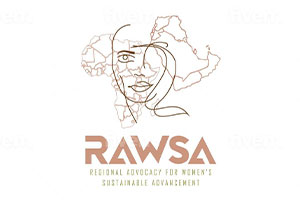
RAWSA
RAWSA (Regional Advocacy for Women’s Sustainable Advancement) Alliance for African & Arab States is committed to advancing gender equity in access to health services and to information (telemedicine) in the scope of sexual and reproductive health and rights (SRHR).
This is, for example, through telehealth solutions like the app "RAWSA Knows". The innovative app was launched in February 2023 in partnership with Safe Abortion Action Fund, and it is the first sexual and reproductive health and rights app in the Middle East and North Africa region. The App was developed and designed after several consultations with women and girls, through focus group discussions and webinars, to ensure the app responded to the needs of women for a discreet, trustworthy and reliable app to access information on SRHR. To meet the feedback from women, the app is now available in Arabic, English, French, and Amazighi, and it is functionable even with low internet connection.

Roche
1. Roche is deeply committed to addressing barriers to clinical trial participation, diversifying genetic data for scientific discovery, and increasing access to innovative diagnostic and therapeutic solutions.Roche is pioneering new innovations to improve the health of women, with a significant number of our medicines and diagnostics that are approved or in development addressing unmet needs in diseases and conditions that differently or predominantly affect women. The goal is to advance inclusive research that includes patients who reflect the diversity of those who experience disease, including in terms of sex and gender.
2. XProject is Roche’s global initiative to tackle the existing inequities in women's health and drive change to close the gaps. XProject, launched in June 2022, is a long-term commitment for Roche. In its first year, the project kicked off and started to catalyze a real movement for change.
Through a broad campaign, sharing a collection of #NotSoFunFacts, XProject has drawn attention to the various shortcomings in different areas of the health sector and to ensure that women's voices were no longer pushed aside but heard loudly. XProject’s campaign #MyStoryForChange provides a platform for women to share their health stories so that we can help change the way we approach women's health. To date (July 2023), over 630 women all over the world have shared their stories. Next, Roche will continue to build on the stories collected and continue to drive change forward towards truly women-centric healthcare systems. Read Roche’s full commitment to Women’s Health.

Safe YOU (Impact Innovations Institute)
Impact Innovations Institute in Armenia has created an innovative women-centric solution, Safe YOU, to reduce Gender-Based Violence (GBV) and promote women’s empowerment through a mobile app and AI based web platform. Safe YOU was designed with women, by a team of women. The application provides immediate emergency help to women and girls at risk of violence, and acts as a bridge between women and pre-existing services which struggle to reach their beneficiaries, due to geographical or financial constraints. The solution has currently over 30,000 women and girls and over 60 partners using the web platform across Armenia, Georgia and Iraq and expanding. The features of the platform help stakeholders, such as Governments, local NGOs, international organizations and UN agencies to solve the global issue of a gender data gap and will lead to the long-term prevention of future cases of GBV.
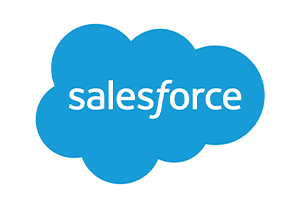
Salesforce
1. Salesforce is committed to practicing inclusive design to create innovative products and features that adapt to the changing abilities of everyone navigating the world — products that truly work for everyone, regardless of age, gender, demographic, or abilities. Gender equity starts with everyday occurrences to make technology, products and solutions more inclusive and usable for women and all genders.
For example, in 2023, Salesforce announced new fields for gender identity and pronoun data in its products, as well as introduced “Mx.” as a standard honorific. These opt-in enhancements give organizations more inclusive ways to collect, manage, and utilize gender data, enabling them to build trust and form deeper connections with their customers and to capture more accurate data.
2. In addition to committing to an inclusive design focus on own product development, Salesforce provides custom training for anyone in the community to access and use the resources in their own work.
For example, Salesforce provides training on Inclusive Design, Ethics by Design, and Fundamentals, which prepares job-seekers for their first roles in the ecosystem. These courses are designed reflecting the needs and concerns of all groups of population, equitably including women and other groups during the design stage. As a result, for example, 55% of participants of the Fundamentals course were women and 44% identified as underrepresented minorities (URMs)
3. Salesforce is committed to provide 500,000 women and girls with more training and education opportunities that use digital tools in the Indo-Pacific emerging economies and middle-income partners. The commitment is part of the Indo-Pacific Economic Framework for Prosperity (IPEF) Upskilling Initiative. Read Salesforce’s full commitment here.

Sonia Jordan-Kirwan, British International Investment Holdings Ltd
British International Investment (BII) is committed to advancing gender equity and empowering women and girls by championing gender-smart investing in healthcare, education, and financial services for women and girls across Africa, Asia, and the Caribbean. BII is actively addressing systemic barriers to gender equality, focusing on creating economic opportunities by fostering women’s professional development and promoting their participation in decision-making to empower women and girls to reach their full potential. The BII has for example developed the Gender Toolkit to guide fund managers on gender-smart investing and approaches to build value for businesses. Extensive resources on the The Gender Toolkit and Case Studies are available here. As of 2023, BII’s made 297 million GBP of gender finance commitments.

Spicey Moms
Spicey Moms is committed to ensuring gender equity in health solutions by redefining maternal care with immediate, comprehensive support tailored to vulnerable mothers’ needs. Recognizing the critical period within the first 48 hours postpartum, the entity offers a lifeline to women facing unprecedented challenges. Whether they are single parents, survivors of trauma, or simply overwhelmed, Spicey Moms volunteers provide essential resources, emotional support, and practical assistance. With a global reach spanning Europe, America, and Africa, the entity’s network of over 10,000 dedicated volunteers, including medical professionals and doulas, delivers vital support to mothers in underserved communities.
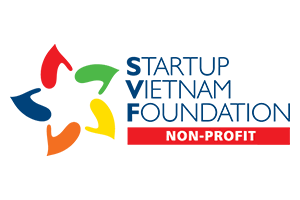
Startup Vietnam Foundation (SVF)
Startup Vietnam Foundation (SVF) emphasizes gender equity, social inclusiveness, and psychological support as cross-cutting priorities for the interventions supporting entrepreneurs, product, and service design. SVF pledges to extend its existing efforts in entrepreneurship nurturing and capacity strengthening to meet the goals of the Equity 2030 Alliance. Leveraging its vast portfolio in facilitating dialogues and multi-stakeholder partnership coordination, SVF commits to integrating gender equity by design into its entrepreneurial culture development programs.
The Swiss Tropical and Public Health Institute
The Swiss Tropical and Public Health Institute (Swiss TPH) is committed to improving maternal and newborn health outcomes and advancing the Sustainable Development Goal 3 (SDG3) by equipping midwives in low-resource settings with innovative tools. In collaboration with the Swiss Institute of Technology (EPFL), the Laboratory for Intelligent Global Health Technologies at Yale University (LiGHT), and D-tree, and with financial backing from Tech4Dev and the Leading House Africa at the University of Basel, the team is developing an AI-driven chatbot designed to enhance evidence-based clinical decision-making for midwives, particularly in challenging or unfamiliar clinical situations. The project will be piloted in Zanzibar, where it will undergo a co-design process to ensure that the tools and resources are tailored to meet the specific needs of midwives and the women and girls they serve. Through this initiative, the team aims to strengthen the capacity of midwives and contribute to better maternal and newborn health outcomes in low-resource environments.

Tiko
Tiko is committed to closing the gender equity gaps in health and ensuring the wellbeing of women and girls by providing access to sexual health services and other essential services and products for adolescent girls and young women (AGYW) in Sub-Saharan Africa. All of the entity’s interventions start with a User Centered Design (UCD) process, where it associates the AGYWs to the design of the solutions. Tiko works directly with local, established female networks to provide services tailored to the needs of young women and girls in their own communities. For example, Tiko has launched a user centered menstrual health initiative, that utilizes its digital platform and AI powered image recognition to verify distribution to existing local shops which provide access to free pads among adolescent girls (15-19). In supporting women and girls, Tiko is also implementing the world's largest Adolescent Sexual Health Development Impact Bond in partnership with the Joint UN SDG Fund, UNFPA and CIFF, harnessing the power of innovative financing, technology and local partnership to deliver more than 600,000 sexual health services to young women in Kenya. Patients and users of the Tiko platform can access a variety of services on their own terms and free of charge, within networks of private and public facilities located in their communities. Lastly, Tiko focuses on other areas such as mental health, sexual and gender based violence, HIV, and family planning and contraception.
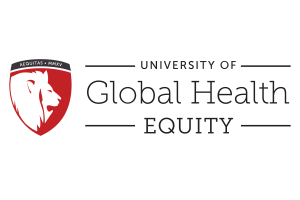
University of Global Health Equity
University of Global Health Equity aims to bring gender equity in the research and production of women-centric solutions in the field of health and sexual and reproductive health. This is envisioned through funding and guiding student-led research in this area. The focus area of the initiative is Africa, with some of the research projects focusing on Rwanda. Given that the University of Global Health Equity is working on this through its Masters in Global Health Delivery program - Gender and Sexual and Reproductive Health track, the plan is to assist at least one group each year to conduct research in this area.
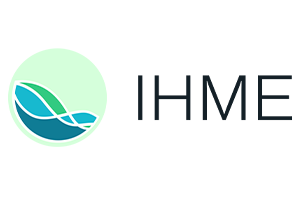
University of Washington Institute for Health Metrics & Evaluation (IHME)
IHME's Gender Equality Metrics project will provide stakeholders with useful and actionable evidence necessary to improve the health and wellbeing of women. The project focuses on key areas of women’s health to improve the evidence base on how to reduce the most significant gender gaps in health and thus identify mechanisms to spur progress. Key to this is the generation of comparable, data-driven estimates of exposure to gender-based violence and associated health effects across geography, time, age, and sex as part of the Global Burden of Diseases (GBD) enterprise; the design and production of effective tools to measure and track gender gaps from input data through to Global Burden of Diseases estimates; and a critical review of key components of the Global Burden of Diseases study with a gender lens, all of which will bring more gender intentionality and integration across the work of IHME.
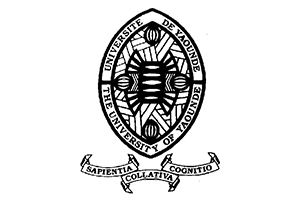
University of Yaounde
1. The University of Yaounde 1 in partnership with The Association des Acteurs de developpement (ADEV) aims to close the gaps in women and girls inclusion in STEM (Science-Technology-Engineering-Mathematics) solutions via promotion of the appropriation and implementation of STEM for a global, sustainable and inclusive development in Cameroon. Specifically, the project wants to promote the use of inclusive STI concepts in Cameroon to increase the awareness of the importance of STI for development and increase the use of the concept in schools, policies and discussions.
2. The University of Yaounde 1 is part of an Advisory Collaborating Committee for the multifunded Human Sciences Research Council project for strengthening the Capacities of Science Granting Councils in Gender and Inclusivity. This project focuses on strengthening concepts of gender equity and inclusivity in the policy and practices of the grant-making cycle. A grant-making cycle's activities that include vital GEI concepts can be a potent tool for making research gender responsive to social needs, enhancing scientific excellence and improving research methodologies. Such a cycle directly supports national governments in achieving national development and linked sustainable development goals (SDG) 5 commitments. The project supports the overarching goals of 16 Science Granting Councils (SGCI) in Sub-Saharan Africa: Burkina Faso, Côte d’Ivoire, Ghana, Senegal, Kenya, Uganda, Tanzania, Rwanda, Ethiopia, Botswana, Malawi, Mozambique, Namibia, Nigeria, Zambia, and Zimbabwe. The 1st phase of the project has been completed. (October 2020 - February 2023) and the 2th phase has started in November 2022 and will last through September 2025.
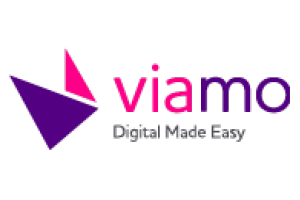
Viamo
Viamo includes women in the design of their mobile solutions at all stages, ensuring understanding of the specific preferences and experiences of women and girls. As a member, Viamo commits to uncover key preferences and experiences for how women and girls engage with mobile to improve their health and livelihoods, through the unique and growing access to data of the platform. This will support further evidence generation to enhance women and girls’ user experience on the Viamo Platform and the interactive voice response (IVR) platform. The primary outcome of this work is to bridge the gender digital divide by significantly scaling reach and increasing engagement among women and girls to have an impact on outcomes such as digital self efficacy and Family Planning behaviors.

WAIV Magazine
WAIV (Women in the AI Vanguard) Magazine champions the advocacy, expertise, and diverse voices of women and girls in AI, amplifying their crucial role in shaping fair and inclusive technologies. By spotlighting their contributions, WAIV supports an industry-wide paradigm shift in AI development that puts ethics and gender equity at the center, ensuring these technologies serve all of humanity. Through free articles and “Deep Dives” podcast episodes, WAIV covers issues from data bias to ethical policies, building a community dedicated to equitable AI.

Z-waka
Z-waka is promoting gender equity in healthcare education, specifically by creating accessible, women-centric digital solutions across a range of health areas, including family planning, sexual and reproductive health, safe abortion services, mental health, and non-communicable diseases (NCDs). By providing comprehensive training for healthcare providers (HCPs), Z-waka aims to address gaps in knowledge, awareness, and service delivery related to women’s health. This is done, for example, through Z-waka's digital platform, which offers continuous education for HCPs in rural and underserved areas of Myanmar and Vietnam, including webinars, self-learning courses, community-driven case sharing, and live dashboards for real-time monitoring and feedback to enhance engagement and knowledge retention. Z-waka places emphasis on improving clinical practices and establishing collaborative partnerships with national health organizations and international NGOs to implement these programs and extend outreach, with a geographical focus on rural and underserved regions where healthcare inequities are most prevalent.
